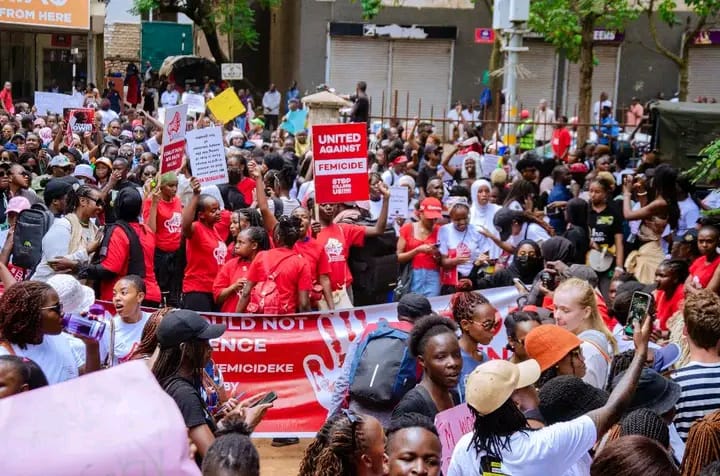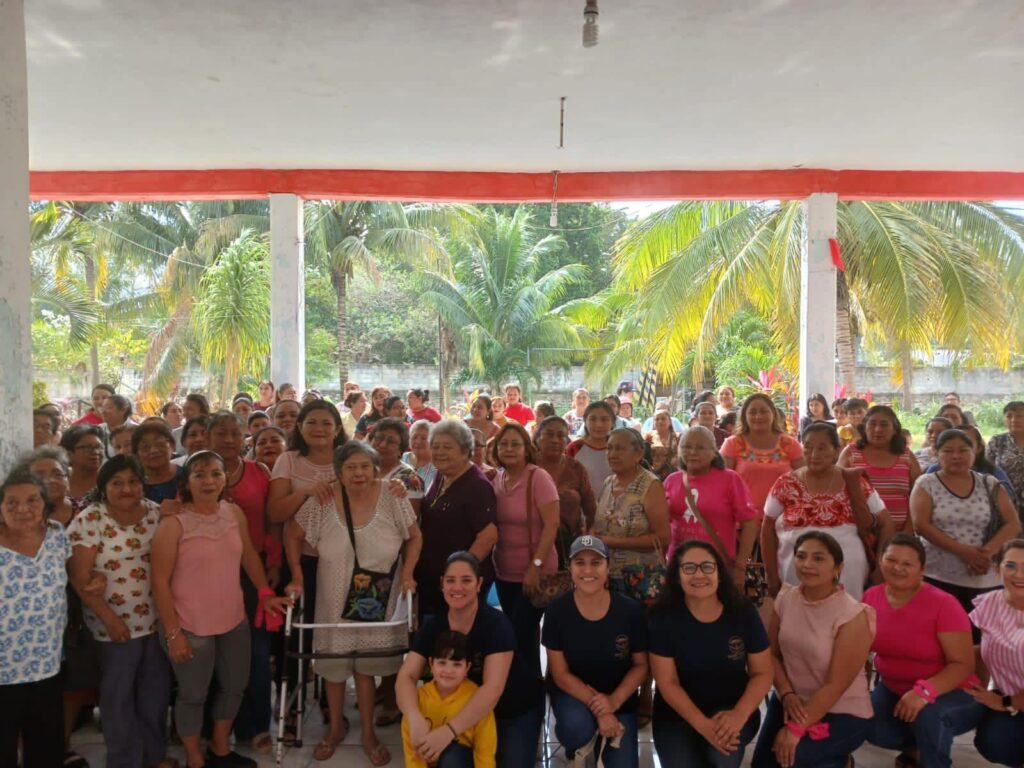WomenStrong Voices at the Women and Girls Summit Africa
WomenStrong is proud to partner with the Women and Girls Africa Summit for their Nov. 16-18, 2020 virtual summit — the largest gathering of governments, donors, advocates, and other leaders dedicated to ensuring that African women and girls can realize their full potential.
Several WomenStrong partners from Africa and the African diaspora were featured speakers this year, including:
- Laura Leeson, Projet Jeune Leader, Madagascar: Women and Girls in Health Crises: Their Triple Burden and the Triple Reward of Women-Centered Responses (Day 1)
- Farah Tanis, Black Women’s Blueprint, United States: Policy to Practice – Women and Movements – Movements, UN Security Council Resolution #1325 (Day 1)
- Maria Omare, The Action Foundation, Kenya: Inclusive Education and 21st Century Skills for Young People (Day 1); and Gender-based Violence: The Response of Social Systems, Community, the Family, Agency, Voice Power (Day 2)
- Monica Nyiraguhabwa, Girl Up Initiative Uganda: Plenary on Realizing Inclusive Educational Systems, Increasing Access to Education for Girls (Day 3)
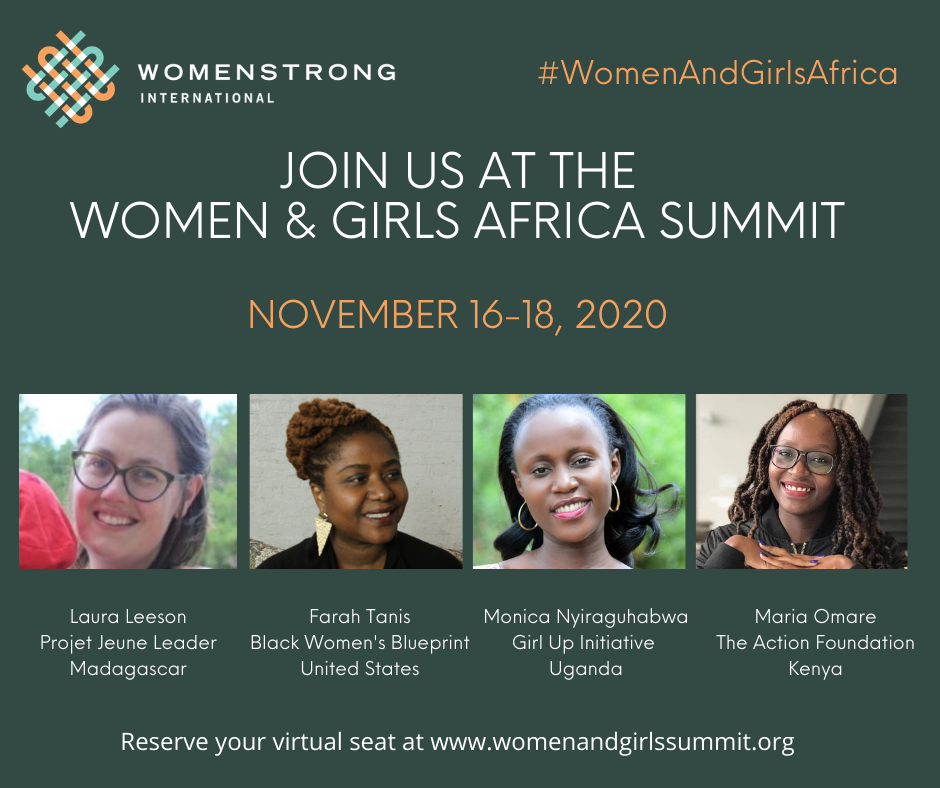
Hannah Barrueta Sacksteder, WomenStrong’s Senior Program Associate, who is tuning in from Merida, Mexico, blogged daily from the summit. Hannah, who previously has worked in both Ethiopia and Kenya as a program coordinator and school evaluator, runs WomenStrong’s online learning hub for our 19 partners in 16 countries.
Day 1: A Call to Governments to Step It Up!
The panel on “Policy to Practice – Women and Movements – Movements, UN Security Council Resolution 1325” delivered a unified message for governments, as the world marks the 20th anniversary of UN Resolution 1325: Step. It. Up!
The landmark global resolution on women, peace, and security calls for special measures to protect women and girls from gender-based violence, particularly from rape and other forms of sexual abuse during armed conflict. Importantly, it also includes the need for governments and global agencies to include women at all the tables where conflict is discussed and hopefully resolved.
And yet, “women are still invisible,” said panelist Najat Vallaud-Belkacem, the head of the ONE Campaign in France and the first woman to serve in France’s Ministry of Education. This is true even beyond peace and security issues, affecting all areas of foreign policy.
“We cannot have just pretty words, must have action. Governments need to be held accountable for their commitments,” she said.
Farah Tanis, the founder and leader of WomenStrong partner Black Women’s Blueprint, noted that her organization works with women within communities to advocate for accountability, using international agreements including Resolution 1325. In this way, Black Women’s Blueprint helps women and girls to place themselves within human rights frameworks.
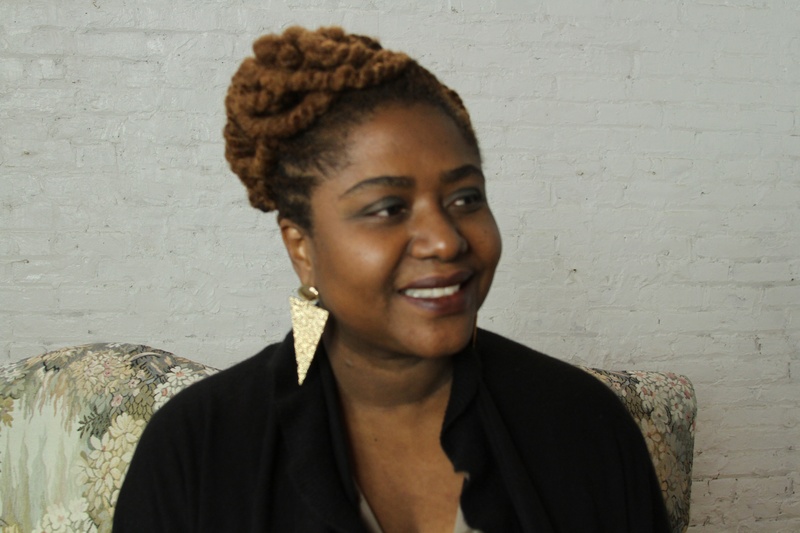
”We want women and girls to see their liberation as not something to earn, but as a right,” she said.
Ms. Tanis’s call for communities and governments to listen to women was shared by other panelists, including Liya Haile of Girl Effect Ethiopia and Jordan Brooks of the United State of Women, who formerly worked with the White House Council on Women and Girls.
“Governments should be listening to the women on the ground, who are the experts,” Jordan said. “We are stronger doing this work together.”
Early Reproductive Health Education Matters
“Let me begin with the story of Tahiry.”
That’s how Laura Leeson, with WomenStrong partner Projet Jeune Leader in Madagascar, began her presentation for the “Women and Girls in Health Crises: Their Triple Burden and the Triple Reward of Women-Centered Responses” panel.
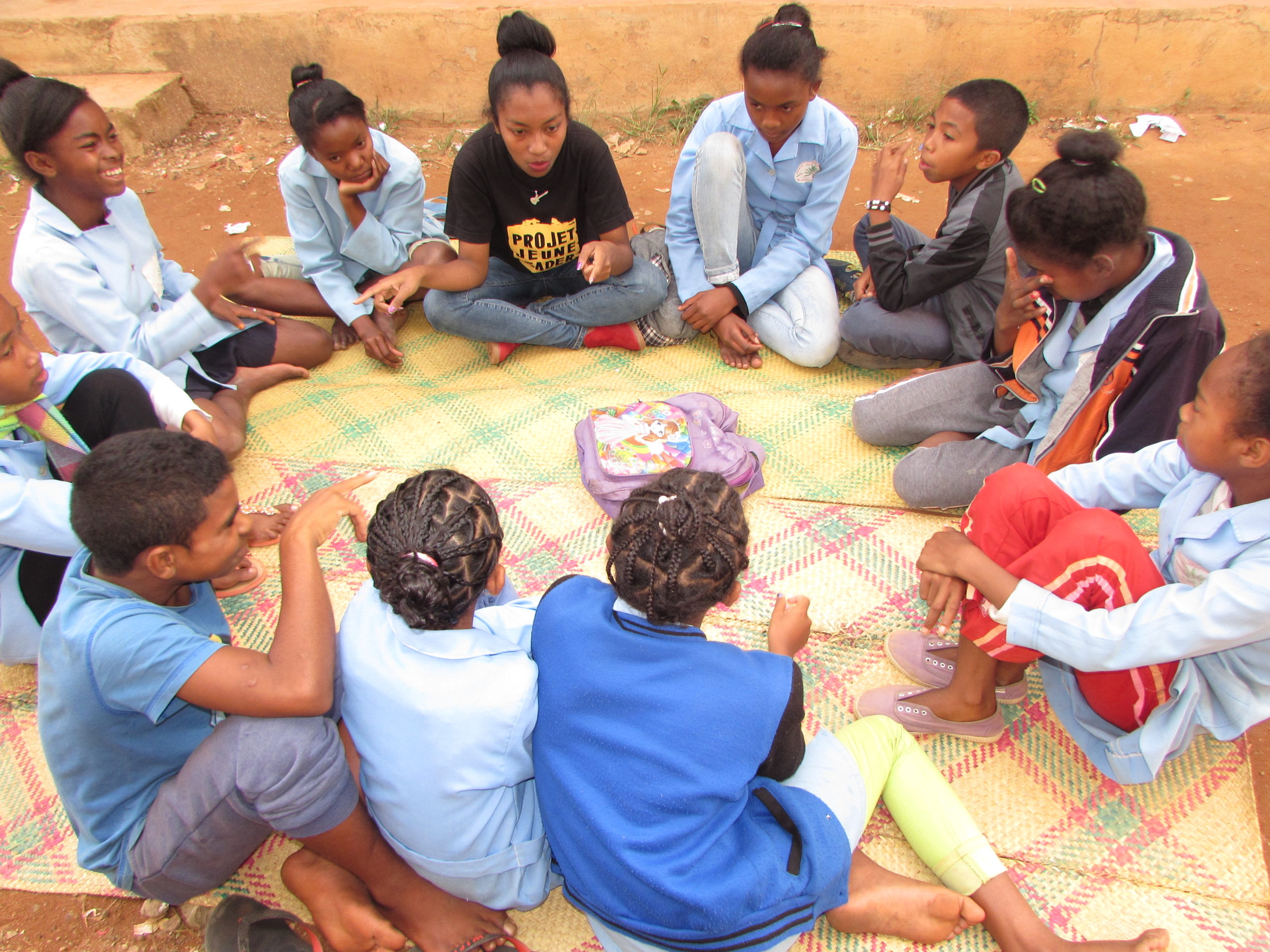
The story starts with a young Malagasy girl, Tahiry, beginning to learn about “good” and “bad” touches during a middle school class. Filled with questions and newfound knowledge, Tahiry was ready to continue learning about her sexual and reproductive rights from the youth-led community-based group.
One week later, schools were shut down, to remain closed for the rest of the year. While stories of school closures during this global pandemic have become the norm all over the world, Tahiry’s school did not close in 2020 due to COVID-19 — it actually closed in 2017, as a result of a plague outbreak and a teachers’ strike.
Although the reasons for school closures were different, their effects on girls are consistent. Once girls like Tahiry leave school, they are at greater risk of not returning, of becoming child brides, and of having early pregnancies that endanger their health.
Fortunately, according to Ms. Leeson, Tahiry escaped that fate, through her own advocacy and interventions from Projet Jeune Leader. Tahiry fought for her right to not be married as a child, and to return to school.
When I hear about reproductive health programs, I often think about teens and young women. Yet Projet Jeune reminds me that a crucial age is often left out: 10-14-year-old girls, just entering puberty. If Tahiry’s school had waited until she was 18 to teach her and her classmates about reproductive health topics, it’s very possible she would have already been married.
Tahiry’s stories mirrored the lives of other girls and women I’ve met all over the world. Girls are repeatedly left out of critical conversations — and yet to be successful, they must be able to advocate for themselves.
Something is crucially wrong with this system.
I’m grateful for our WomenStrong partners like Projet Jeune Leader, who are fighting for change so that 10-year-old girls no longer need to advocate for their rights on their own.
Inclusive Education for Girls with Disabilities
The final WomenStrong partner panel on Day 1 of the Women and Girls Africa Summit was “Transformative Education & Life Skills – 21st century skill for young people, Creating Healthy and Empowering Relationships and Reimagining Sexual health Education.”
Speakers including UNICEF’s Edward Addai, HackathonGirls’ Juma Baldeh, and Obama Foundation Leader Thuba Sibanda talked about the gender disparities in education — including how girls are disproportionately affected by the lack of opportunities found in schools and, later on, in the workforce.
It’s even more true for girls with added vulnerabilities.
Maria Omare, founder and director of The Action Foundation, a WomenStrong partner in Nairobi, Kenya, highlighted the additional obstacles faced by girls with disabilities, especially those who lack resources in the sprawling Kibera slum where Action Foundation works.
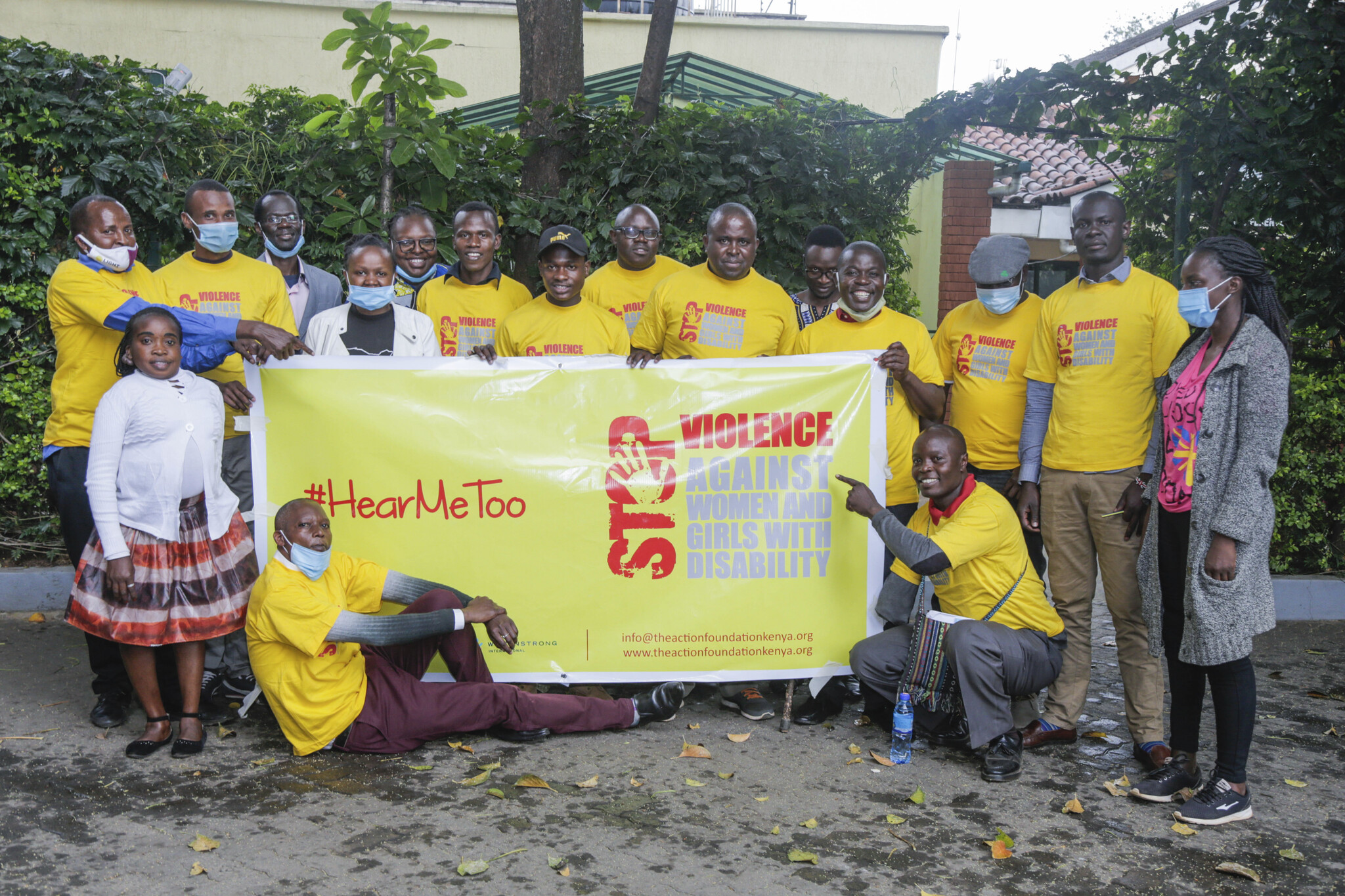
The Action Foundation believes that girls with physical and developmental disabilities deserve to grow up and attend school, surrounded by the support of their community, just like any girl. This includes giving these girls the space to gain critical life skills, such as problem-solving and critical thinking, to help them navigate through their lives. Their programs include mentorship programs, violence prevention efforts, and resources for girls with disabilities and their families and teachers.
Other panelists spoke about additional methods of expanding girls’ skills, self-confidence, and future possibilities.
Juma Baldeh, from HackathonGirls in Gambia, teaches girls an additional set of life skills: computer programming and coding. Juma said her focus is the importance of encouraging girls to break stereotypes by going into computer technology fields. then Thuba Sibanda, of PAYNamibia and The Obama Foundation, spoke about her organization’s focus on team sports, to nurture both self-confidence and critical thinking.
While the panelists differed on their approaches, they all agreed on the crucial point: that girls need more focused interventions in order to thrive.
Day 2: Voices from Cameroon, Kenya, and Uganda on Violence Prevention
Jump to: Day 3
“My voice had done something new. My voice had saved me.”
Recalling the time she spoke out against breast ironing, a practice in Cameroon of pounding or massaging the breasts of pubescent girls with a hot tool in order to flatten the chest, Yvonne Chi of World Pulse urged women and girls to use their voices for change, during a panel at the Women and Girls Africa Summit entitled, “Gender-based Violence: The Response of Social Systems, Community Initiatives, the Family, Agency, Voice Power.”
While gender-based violence (GBV) has long been an issue for women around the world — affecting 1 in 3 women in their lifetimes — the rise of COVID-19 has been mirrored by a surge in violence against women and girls, giving rise to a new “shadow pandemic,” one that desperately needs to be addressed.
Yet, even if women and girls speak out, what can be done to change the systems that normalize and perpetuate violence?
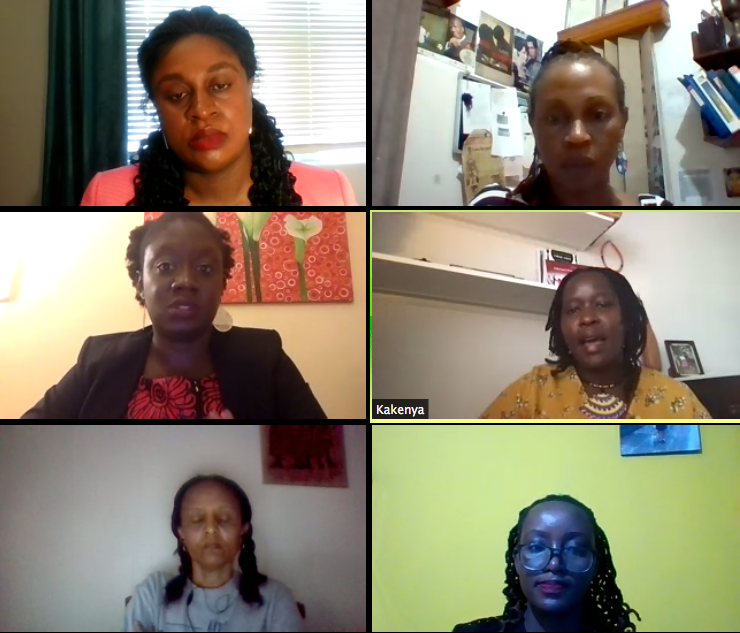
Tina Musuya, from Uganda’s Center for Domestic Violence Prevention, noted that even though many victims of gender-based violence speak out against their perpetrators, there are powerful barriers preventing them from receiving justice. From the lack of support on the family level, to obstacles in the antiquated justice system, women and girls who come forward face additional hurdles if they hope for justice and accountability.
“Response services need to support survivors’ participation with the justice process, and adhere to the key principle of do no harm” said Ms. Musya.
But what does this look like in practice?
Maria Omare, Founder and Executive Director of The Action Foundation in Kenya, a WomenStrong partner, provided practical program examples. Her organization works with women and girls with disabilities, who experience double discrimination are disproportionally affected by violence, both at home, and when they try to seek support.
In fact, “women with intellectual disabilities are four times more likely to experience violence” than their non-disabled sisters, said Ms. Omare.
Ms. Omare spoke about programs such as The Action Foundation’s Ibuka program, designed to strengthen the economic status, resilience, and dignity of women and girls with disabilities — thus making them less vulnerable to sexual abuse and violence.
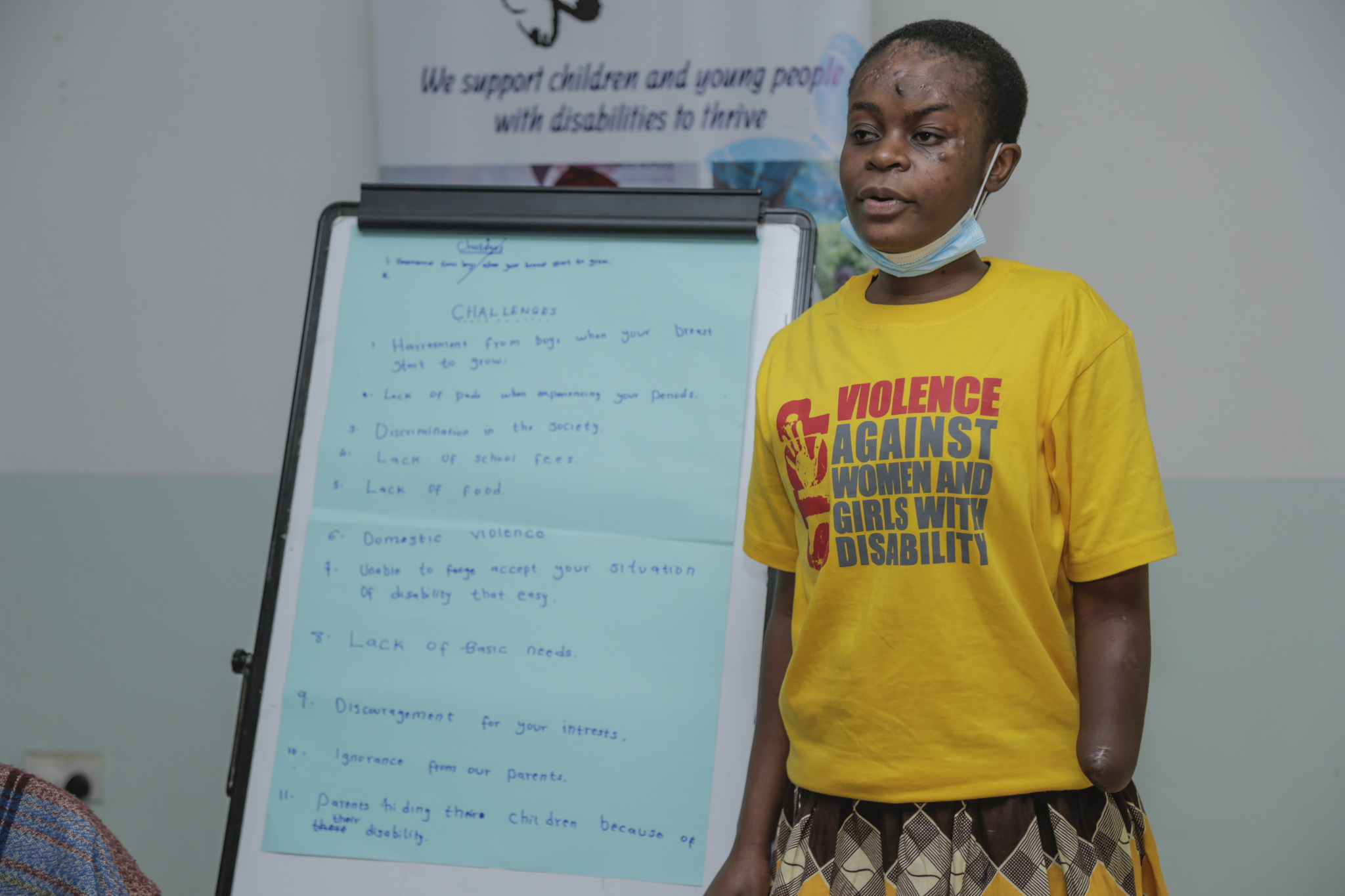
Ibuka includes a mentorship program; education and income-generation training; sessions on rights, including on reproductive rights; psychological support services; and referrals to legal services. By including partnerships with the local community, bringing on men as change agents, and creating a referral network, The Action Foundation is both empowering women with disabilities to be their own self-advocates and strengthening the environment around them.
Rounding out the panel, speaker Kakenya Ntaiya of Kakenya’s Dream in Kenya spoke about her organization’s efforts to empower girls and address violence, including female genital mutilation or cutting (FGM), a practice that has been performed on 80 percent of women in the Maasai community where she works. And finally, Nasnet Ghebrebrhan of the Ugandan organization Raising Voices, shared examples of their work, which strives to influence the power dynamics shaping relationships particularly between women and men, girls and boys, and adults and children.
It was a great session, and I appreciate panelists sharing such personal stories and tangible examples of how best to address violence against women and girls.
And as we move forward to tackle this shadow pandemic, I will remember that while my voice might save me, it is our voices that will save us all.
Day 3: When Girls Aren’t in School
“There are over 300 million children out of school. Never before have we seen the disruption of education at this scale.”
That’s how the moderator, Evelyn Sallah, opened the “Realizing Inclusive Educational Systems, Increasing Access to Education for Girls” plenary session on the last day of the Women and Girls Africa Summit.
No one has been more affected by school closures than girls with limited resources — especially adolescent girls, who were already at great risk of leaving school due to pressures to marry early, bring in family income, or take care of other family members.
These barriers have been greatly exacerbated due to the COVID crisis.
Due to the pandemic and school closures, “Girls are forced to stay at home…where they are subjected to care work” and lose the opportunity to learn, said Monica Nyiraguhabwa, founder and leader of Girl Up Initiative Uganda, a WomenStrong partner.
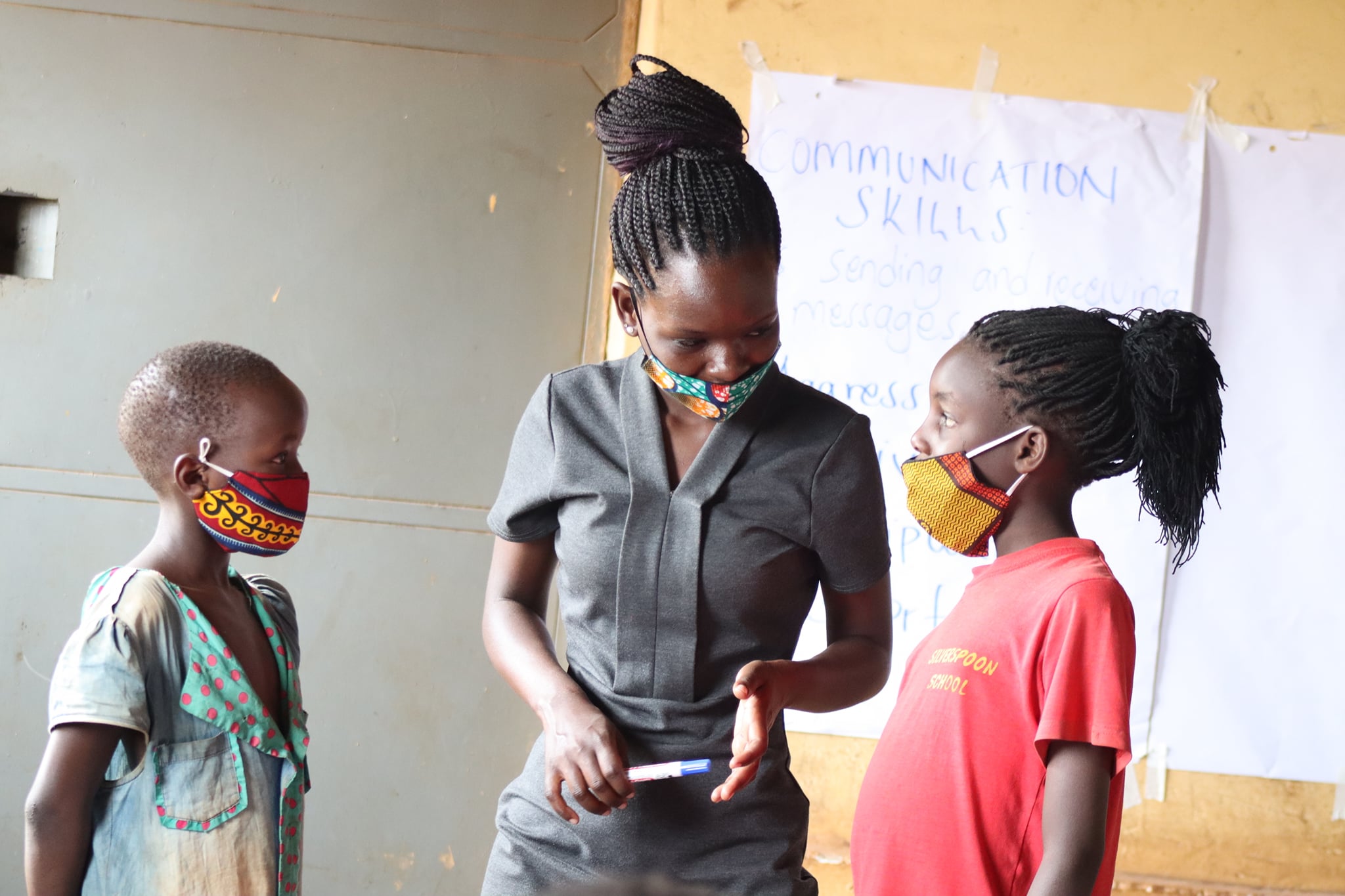
Mairo Mandara of Girl Child Concerns in Nigeria added that, due to the pandemic, she is seeing “an increase in child marriage and sexual violence.”
And while organizations have worked to quickly respond to girls’ quickly changing needs now, Faustina Fynn-Nyame of the Children’s Investment Fund Foundation challenged us all to prepare for the future. “This will not be our last pandemic,” she said, “so how do we learn to deal with these issues for future generations?”
The panelists lifted up three areas to ensure greater educational access for girls, both during and after COVID:
- Work with community gatekeepers, as is done by Girl Child Concerns and the organizations represented by other panelists, including government and/or religious authorities, parents, and teachers.
- Utilize multiple approaches to reach out-of-school girls, such as radio programs that air within households, a strategy used by Girl Up Initiative Uganda.
- Strengthen global sharing of knowledge, about what works and what doesn’t, to reach vulnerable girls and their families, and to keep them in school.
As Ms. Nyiraguhabwa said: “We must make sure that we do not work as separate entities. It is essential that we learn from each other and collaborate.”
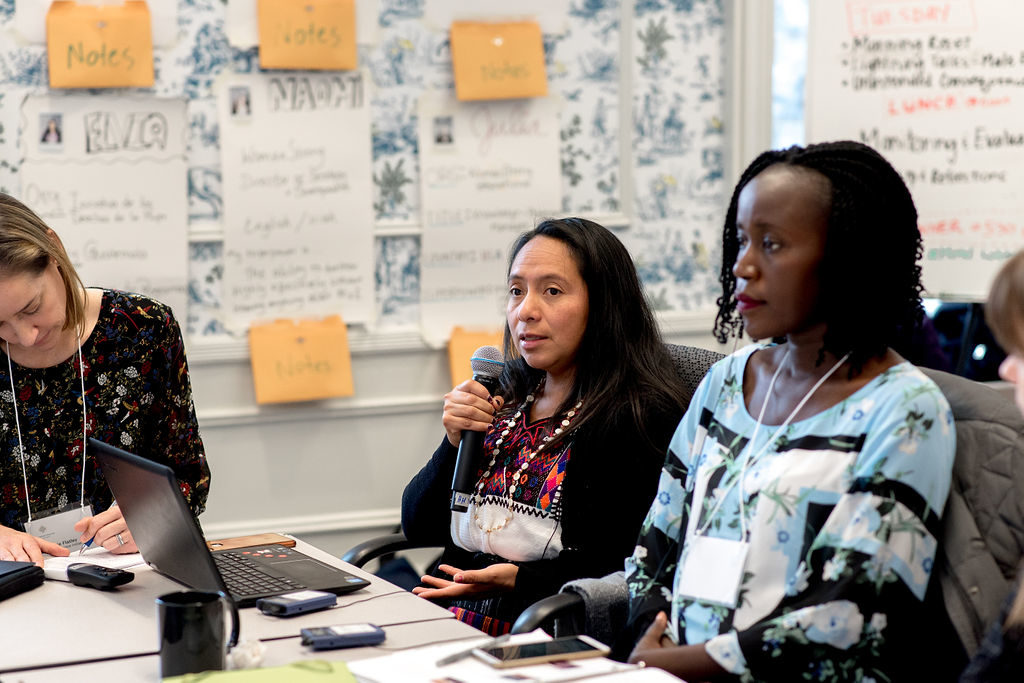
The last point — sharing local knowledge across organizations and communities — is a foundation of WomenStrong’s own approach. As a WomenStrong partner, Girl Up Initiative Uganda is an integral member of WomenStrong’s Learning Lab, which brings together 19 organizations across 16 countries, learning and sharing solutions and challenges surrounding their work to help women and girls thrive.
“The pandemic gave us the opportunity to understand [how to address] the issues of gender-based violence prevention and response during an emergency,” Ms. Nyiraguhabwa said, and “the Learning Lab…has given us the opportunity to test our approaches.”
We won’t know the true impact of the currently unfolding global crisis for some time. But one silver lining I got from this panel is that it has prompted many community organizations to adjust, trying new, maybe better, approaches to reach out-of-school girls.
We need to learn from this experience. If we do not, when the next global crisis hits, we will again see 300 million children, or even more, out of school.
And, as we know, it will be girls who will disproportionately pay the price.

